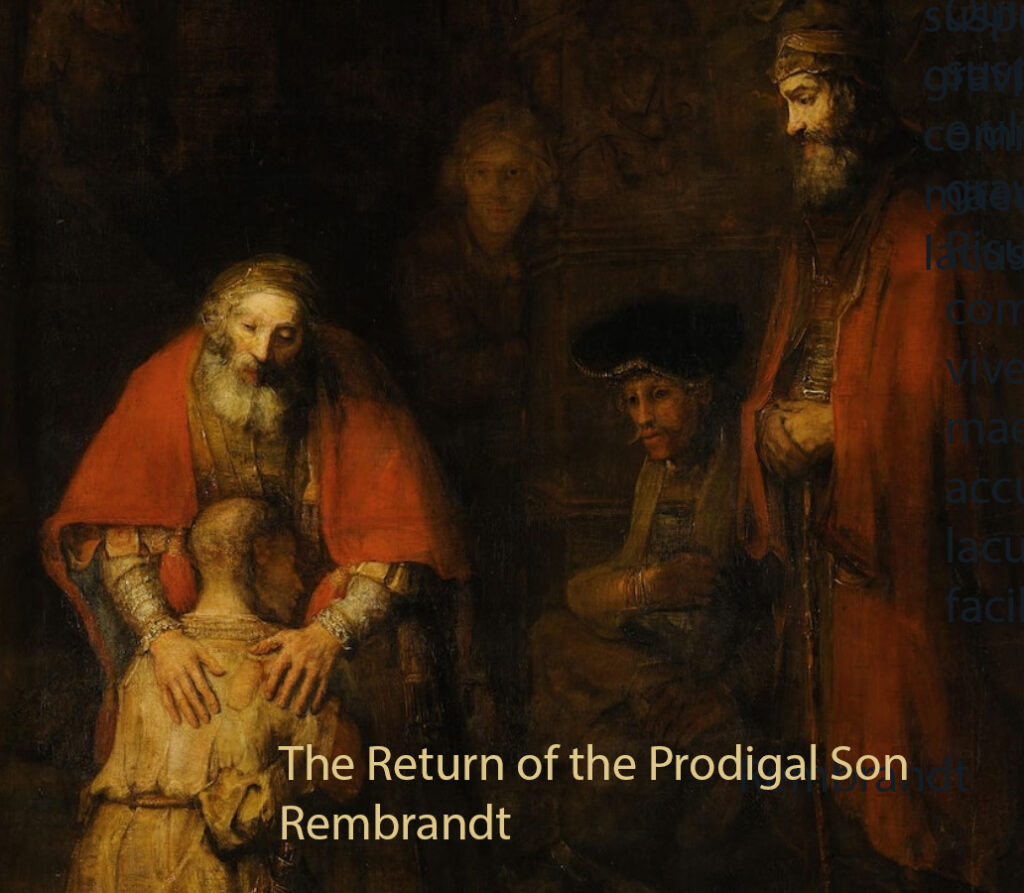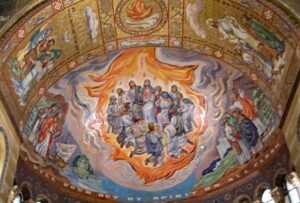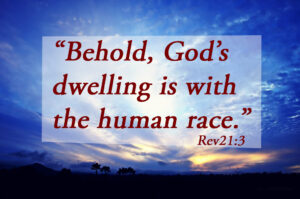Fourth Sunday of Lent - Year C, Lectionary: 33
In telling this story to the Pharisees and to us, is Jesus hoping we would see that something of the older brother’s attitude is prevalent in us? Is Jesus hoping that, like the “sinners” with whom he dined (i.e., the “sinners” who saw Jesus as offering something better than what they had been squandering their life in pursuit of), we would look to him for how to be truly happy?
Full Readings for the Fourth Sunday of Lent, Year C
Gospel: the Prodigal Son – Summary
“Tax collectors and sinners were all drawing near to listen to Jesus,
but the Pharisees and scribes began to complain, saying,
‘This man welcomes sinners and eats with them.’
So to them Jesus addressed this parable:
‘A man had two sons, and the younger son said to his father,
‘Father give me the share of your estate that should come to me.’
So the father divided the property between them. . . .
After a few days, the younger son collected all his belongings
and set off to a distant country where he squandered his inheritance on a life of dissipation. . . . When he had freely spent everything, . . . and went back to his father who welcomed him. . . .His brother became angry, . . . His father said, ‘My son, you are here with me always; everything I have is yours. . . .‘” Luke 15:1-3, 11-32
A NEW PERSPECTIVE ON AN FAMILIAR STORY
For years we have heard this story about the Prodigal Son and his ever-loving, compassionate father whose care for this wayward son is not lessened by the son’s asking for and then squandering half of the father’s wealth. Instead of focusing on the time of the younger son’s return, let us reflect on what could have happened in the house of the father during the absence of this younger son and how the older brother’s perspective may be similar to our initial perspective on just about everything that happens, on how thing impact us and our immediate reality. (As we can readily see, human nature has not changed much over time, which is one of the reasons we should use what these Bible stories reveal as a means of revealing things about ourselves as we are right now!)
From the words of the older brother, “your son returns who swallowed up your property with prostitutes,” we can surmise that the father and this older son knew that the prodigal had wasted half of the father’s fortune on fleeting pleasures and temporary trinkets, and not spending much time developing his God-instilled potential to become more of what he could be and what being more observant of his father could have helped him become.
In telling this story to the Pharisees and to us, is Jesus hoping we would see that something of the older brother’s attitude is prevalent in us? Is Jesus hoping that, like the “sinners” with whom he dined (i.e., the “sinners” who saw Jesus as offering something better than what they had been squandering their life in pursuit of), we would look to him for how to be truly happy?
What interior changes will you and I be making so that we can spend more time being the curious “sinners” asking Jesus to dine with us (and responding to Jesus’ invitation to dine with Him) during the approaching Easter season?
THE OLDER BROTHER
“The father said to his older son, ‘My son, you are here with me always; everything I have is yours.’” (Luke 15:31)
This sounds as if the father knew his older son well and surmised that the older son’s protesting the party was fueled by the older son’s desire to protect his “right” to all of the father’s remaining assets. Were there a sequel to this story, what would be the possible scenarios? Upon the father’s death, would the older son inherit everything that belonged to the father? Would the younger son inherit anything? (After all, he already squandered his share.) What would the years between the prodigal son’s return and the father’s death have held for the three of them? Would the father change the contents of his will? Why did Jesus have the father speak the words, “Everything I have is yours.”? Were they a plea for the older son to convert from a life focused on his own well-being to one of seeing his truer inner need for a less self-centered, more outgoing love for God and others?
What interior changes are each of us willing to make so that our inner longings and disciplines will lead to our conversion from a life focus on our own well-being to an everyday life of Jesus-like love, the life His Father made us capable of achieving?
DON’T SQUANDER THE REST OF THIS LENTEN SEASON
As we draw closer to Holy Week and Easter Sunday, may we become more honest about the sinners we are. May we look around us and become more aware of those who are role models of what we know the Trinity sent for us to turn our lives around, Those role models are revealing what the Second Person of the Trinity revealed and told us, his desciples to reveal: that “we are with the Father always, that everything we need is ours.” We need to want it and with God’s help get on with the life of ourselves as children of God in need of conversion and ever present forgiveness and welcoming home.
Sister Loretta
Comments or Questions:





